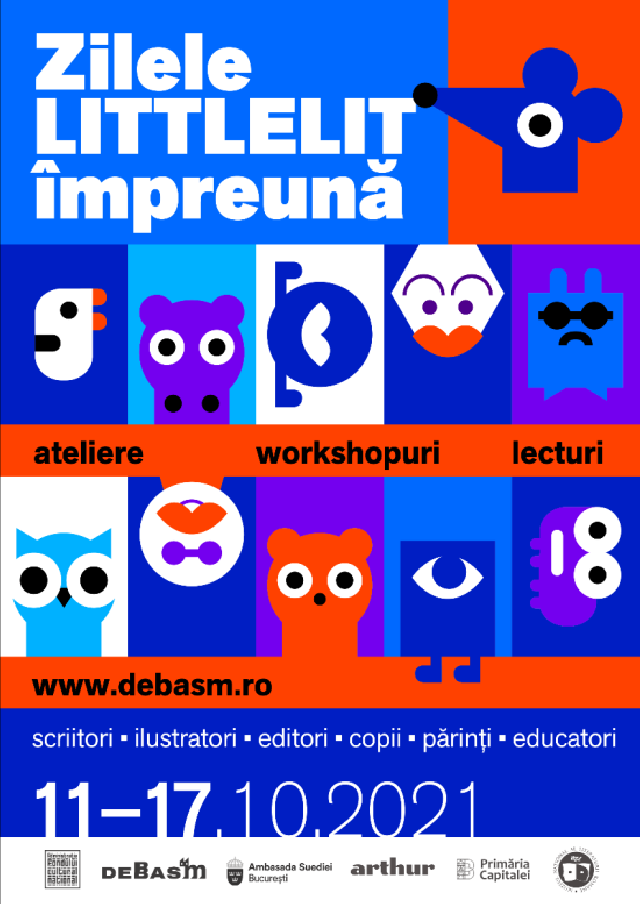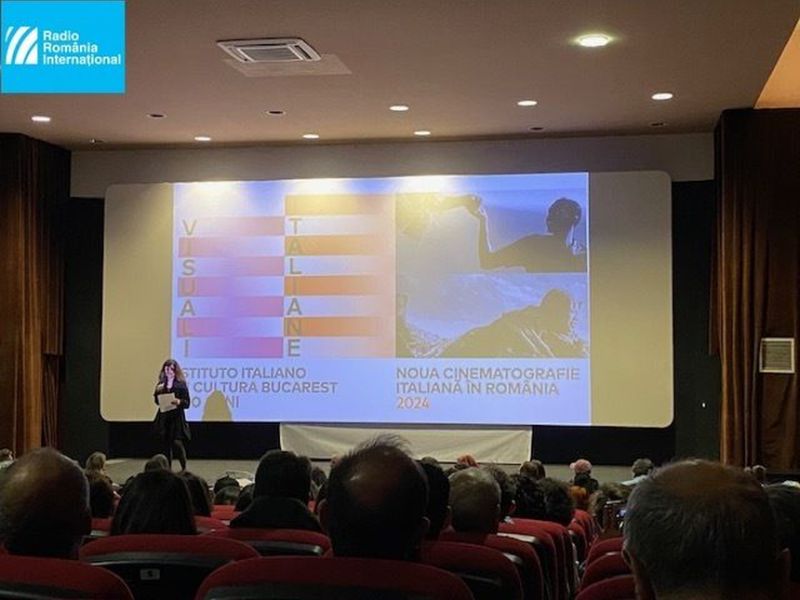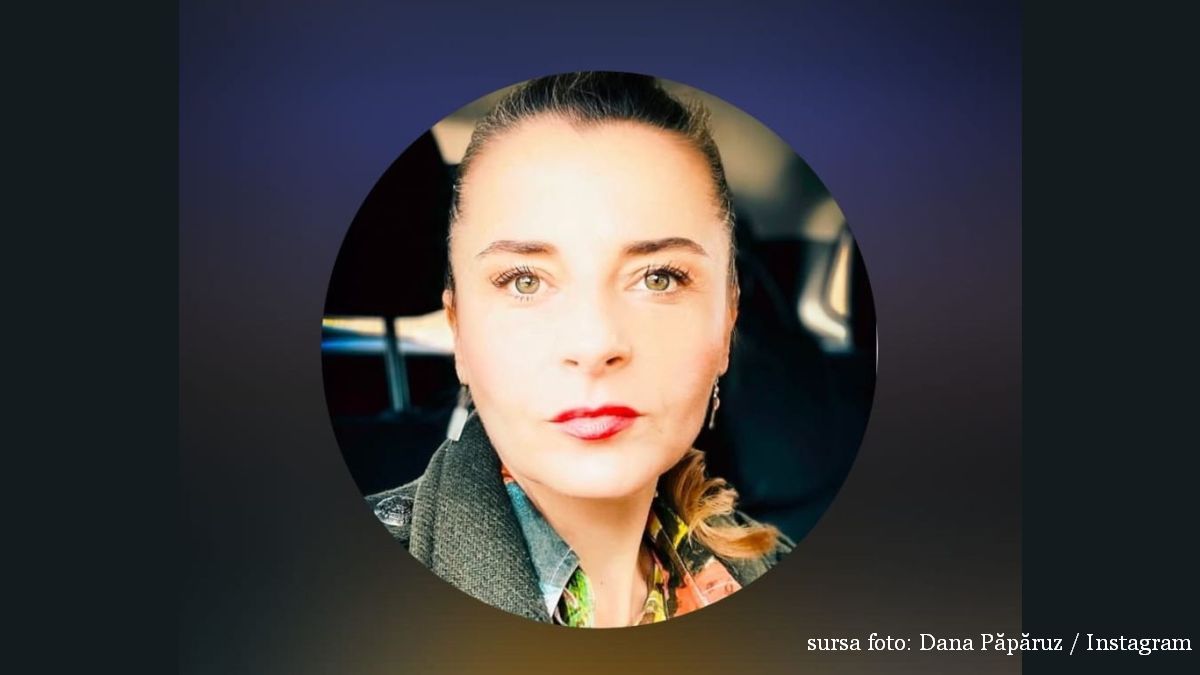Literature for children in Romania in the digital era
LittleLIT, an online project for children's literature
Warning: Trying to access array offset on null in /home/web/rri.ro/public/wp-content/themes/rri/template-parts/content.php on line 53

Warning: Trying to access array offset on null in /home/web/rri.ro/public/wp-content/themes/rri/template-parts/content.php on line 98
Corina Sabău,
20.11.2021, 14:00
The Fairy Tale Association has organised this autumn’s
leading event focusing on children’s and youth literature. Running as LittleLIT
Days, the event brought together more than 650 children who enjoyed workshops,
public reading sessions and book launches, staged as part of the aforementioned
project.
For
a whole week, more than 25 online events were held, dedicated to pupils. Among
them, reading workshops offered by Romanian authors of children’s and youth literature,
staged in schools around Bucharest, Timișoara and Cluj. The activities were
dedicated to professionals in the field on children’s literature, such as
authors, illustrators, translators, editors, PR specialists, book sellers. Part
of the events also targeted the lay public. Together was this year’s theme,
purposefully thought out as a feasible alternative to the social environment we
live in, marred by fear, loneliness and isolation.
Writer Victoria Pătrașcu, one of the founders of the Fairy Tale Association:
When we thought out this project, that is a year ago, we never imagined things
would be just the same, that we will still be confined indoors. We would have really
liked to enjoy all that, together with the children, to be able to join them,
to take their questions. Things were not the same just as we would have liked
to, which doesn’t mean we cannot be together even in these difficult conditions,
so that the LittleLIT story may continue, beautifully. LittleLIT stemmed from a
collaboration between the Fairy Tale Association and EUNIC. What we had there,
from the very outset, was an idea in a nutshell, it was a project by means of
which we thought of taking writers of contemporary Romanian literature for
children to their readers, so that the latter may have the chance to know those
who craft the stories. The little ball that we had in the beginning had grown
into a maiden edition, in 2019, themed LittleLIT Mirrorings, where we had partnerships
with five foreign cultural institutions. Back then we had five foreign guest writers
who gave workshops for Romanian writers as we very much want the Romanian
writers to have examples of good practice, so they may know how to make themselves
better known, how to become better writers, how to refine their writing. And it
was also then that we staged meetings with potential readers, we took those writers
to the meet the children, in schools or in rather underprivileged milieus,
where children do not have access to culture.
The
LittleLIT Days, Together schedule has been thought out to highlight the importance
of the book and reading for the development of children and in a bid to give
them the opportunity to get acquainted with books what were written for them,
and with those who wrote them. Equally, the project seeks to create a space of
dialogue between children’s literature professionals (writers, editors,
professors, reading promoters) from Romania and from other European countries. So
The Fairy Tale Association continues to strengthen the dialogue with schools
and the teaching staff, offering teachers specific methods for using literature
as a method for teach the content-based items in the curricula.
Victoria Patrascu:
We somehow felt lonely and lost in the great Romanian literature and we
thought it was unfair for the children’s literature to be viewed as a
Cinderella of literature. There weren’t back then, and there still aren’t
either, as we speak, any awards for Romanian children’s literature or if they exist,
they’re not being awarded. Notwithstanding, there is an increasing number of
writers of children’s literature, writers whose success has been growing. Some
of us have got round to participating in international fairs, in the meantime,
even at the International Children’s Book Fair in Bologna, which is something
extraordinary, we have become increasingly aware of the importance of children’s
literature in the world. This literature shapes up readers, it a literature
that has been developing one year after the next. Although book sales are on
the wane, children’s literature is on the rise, literature for children brings
money and that’s what editors should be interested in. Many of them realized, and
that is precisely why they created special collections, they realized children’s
literature does have its perks, apart from those we know already: those of bringing
up the new readers, of developing children’s emotional balance, of helping them
develop. Now,
returning to the 2018 moment, when we founded the Fairy Tale Association, things
fared worse than they fare today, so we thought of turning pro. We had some
examples as well, many of them from the Nordic countries, telling us that when
we were together, we were able to do a lot of things. And that’s what happened,
we were a nucleus made of four writers, Adina Rosetti, Laura Grünberg, Iulia
Iordan and myself, who started up this Fairly Tale Association. But here we are,
three years on, we are 20 writers already, we have three caravans who reached dozens
of communes, as well as hundreds of workshops on the record. Also, we organize
this event as well, the LittleLIT Days, under the form of a children’s
literature festival. As of late, we also have a YouTube channel we want to
develop.
There were three keynote online launches of LittleLIT
Days’ special guests this year. Swedish writer Åsa Lind, Swiss author Dana
Grigorcea and Romanian writer Lavinia Braniște gathered more than 2, 000 young
readers. Equally successful were the two big events dedicated to specialists and
those interested to find out more about contemporary Romanian children’s
literature – the webinar Incubator themed The domestic book market for
children: a magical, otherworldly world facing worldly problems and the Masterclass
given by the special guests.
(Translation by Eugen Nasta)





























